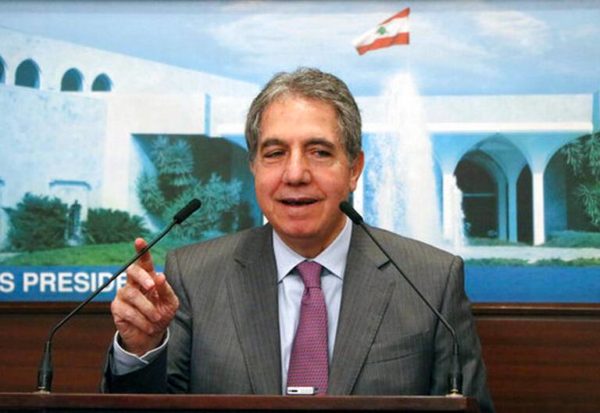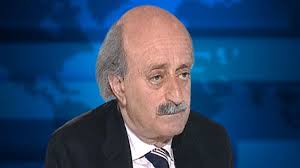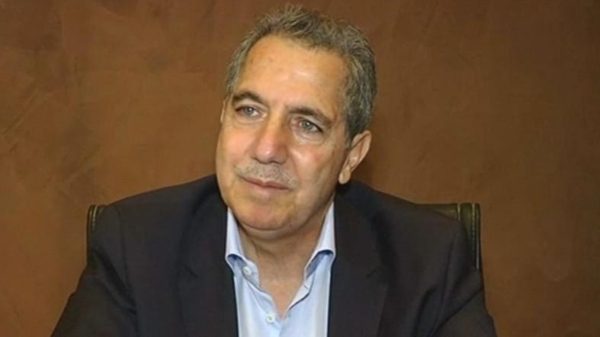Lebanon should move quickly to implement reforms to stabilize the country’s economy, the International Monetary Fund said Thursday.

Lebanon is facing its worst economic crisis since its 1975-1990 civil war, and Prime Minister Hassan Diab suspended payment of a $1.2 billion Eurobond maturity due on Monday and is seeking debt restructuring because of dwindling foreign currency reserves.
“Given the severity of economic conditions in Lebanon, it’s important that the government designs and implements promptly a comprehensive package of reforms to effectively address the economic challenges and improve Lebanon’s economic prospects,” IMF spokesman Gerry Rice told reporters.
While the country has not requested aid from the Washington-based crisis lender, “We stand ready… to assist the authorities in those efforts.”
An IMF team has met with Lebanese officials, and is now waiting to see their plans “on how to tackle the economic challenges they face,” Rice said.
Meanwhile, Finance Minister Ghazi Wazni said Thursday that Lebanon’s plan to tackle a financial and economic crisis will meet IMF recommendations and will be ready in weeks, adding that any recourse to an IMF program must be politically agreed and its terms should not cause suffering.
Reuters quoted Wazni as saying that the Lebanese pound’s official exchange rate would be maintained for the “foreseeable future”, saying this helped control inflation among other factors.
Wazni said the IMF was ready to send experts back to Lebanon once the plan was ready. The government’s plan would meet “the recommendations of the IMF” and include a plan that Beirut is drawing up with the World Bank.
Wazni said Lebanon was in need of $25 to $30 billion of assistance over the next five years to get out of the crisis.
“Lebanon welcomes all international financial assistance without exceptions. But when it comes to the IMF, this depends on several matters: that the understanding with the IMF – if Lebanon resorts to it – … does not negatively affect the political situation in Lebanon,” Wazni said.
The terms should also not affect “the social situation and livelihoods” and there should be “political understanding” on any program, he said. The Fund should not impose “traditional conditions” such as tax increases or privatization.
Many analysts believe an IMF program is the only way for Lebanon to secure financial support, but it has been opposed by the Hezbollah group, which backs the government.
There has been no sign of a bailout for Lebanon from states that have provided support in the past. They say the government must reform before any assistance is forthcoming this time.
KEEPING THE LEBANESE POUND RATE
Lebanon has suspended payment of a $1.2 billion Eurobond that was due on March 9, saying foreign currency reserves are critically low and needed to pay for essential imports, and called for debt restructuring talks with creditors.
Wazni said the government plan would also be presented to bondholders with whom preliminary contacts had started via its financial adviser, US investment bank Lazard.
“When you want to communicate on the issue of the public debt or its restructuring, you have to present the creditors a convincing, credible, comprehensive program,” he said.
“If the negotiations reach an orderly path … and there is agreement with creditors, then we can avoid lawsuits,” he said.
The long-brewing crisis came to a head last year as capital inflows slowed and protests erupted against the ruling elite over decades of state corruption and bad governance.
The Lebanese pound has lost around 40% of its value on a parallel market relative to the official exchange rate pegged at 1,507.5 pounds to the dollar, which is still used for the purchase of fuel, wheat, and medicine.
“Currently, we will keep (the currency peg) in order not to increase inflation … and we will consider a flexible policy later on,” he said.
But it was “very difficult to determine the timeframe” for when Lebanon would move away from the peg, he said.
“This depends on Lebanon’s ability to improve public finances, debt, the situation of the banking sector and the capital inflows that will come,” he said.
Wazni , a former advisor to Speaker Nabih Berri, a very close ally of Hezbollah said the government took a step last week in the direction of reforming the electricity sector, a major drain on state coffers, by approving the construction of facilities that will switch power generation to natural gas from more expensive fuel oil.
Costs of servicing the debt in Lebanese pounds had also been reduced by 25%, he said.
Wazni also said central bank governor Riad Salameh, who has faced criticism from some politicians over central bank policies, would remain in his post. “He is staying,” he said.
Jumblatt recommends asking IMF for help
Progressive Socialist Party leader Walid Jumblatt on Thursday said Lebanon has “the right to ask for help from the International Monetary Fund,” citing Iran’s request for aid from the IMF on Thursday in the face of its coronavirus outbreak.

“Amid the enormous explosion of this pandemic, only human solidarity remains essential and down with the narrow political calculations,” Jumblatt tweeted.
“We have the right to ask for help from the IMF, accompanied with a serious reform program, and to ask for help for the Lebanese people and the refugees. This is the simplest protection measure,” the PSP leader added.
“Iran has requested aid and we voice solidarity with it,” he went on to say.
Several officials of Iran-backed Hezbollah have warned against Lebanon asking for financial assistance from the IMF cautioning that such a move would place the country under political hegemony
(Asharq Al-Awsat)


Leave a Reply
You must be logged in to post a comment.